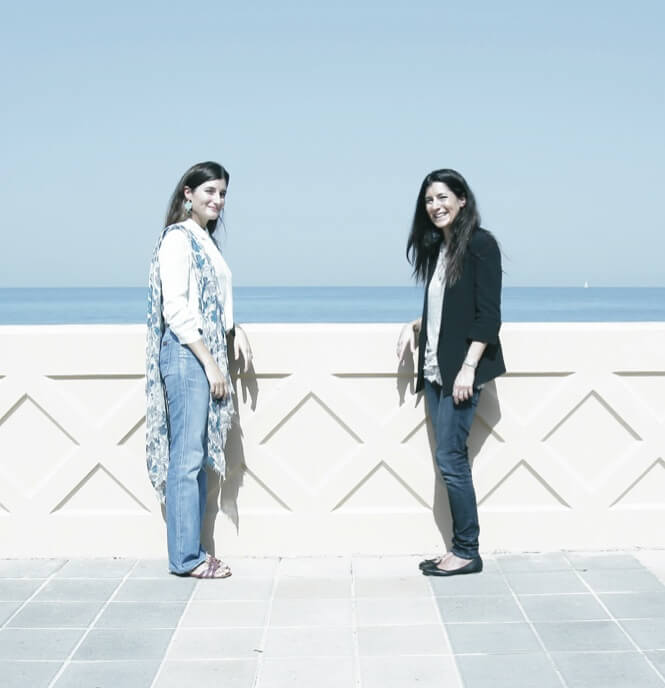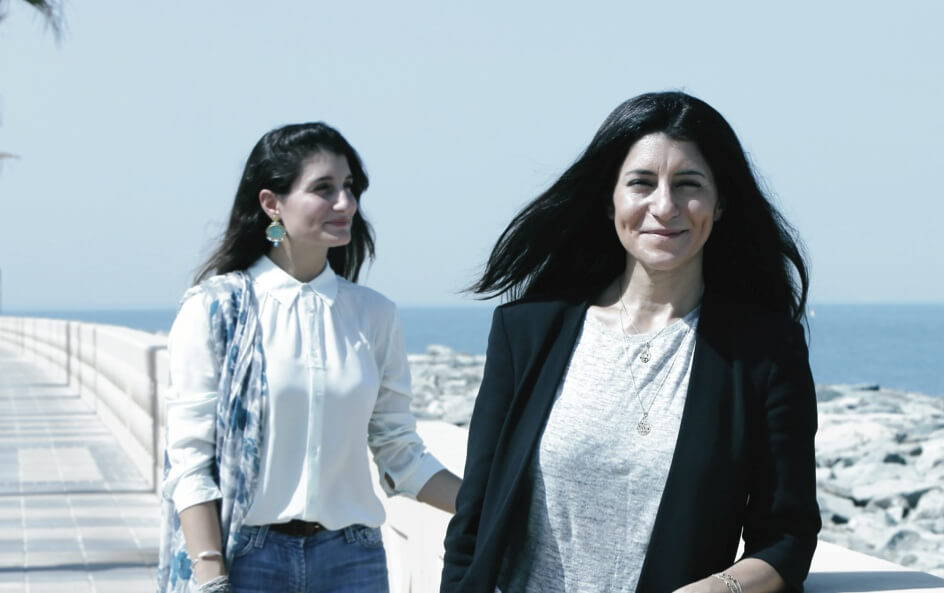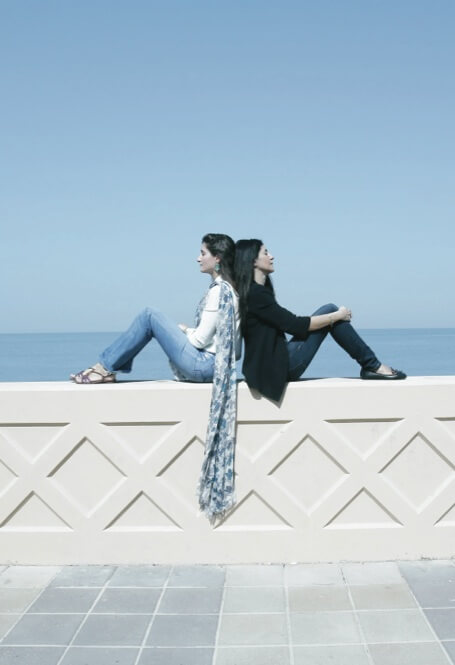Interview with Maissa Abou Adal Ghanem and Nour Abou Adal, HOLDAL Abou Adal Group, Lebanon
The Abou Adal family stands apart from their competition due to their ability of doing things differently, a notion, which has held true throughout the family business’ history. In 1947 Georges Abou Adal established Georges Abou Adal & Cie., a company dedicated to importing and distributing watches and pharmaceuticals in Syria and Lebanon. His family business has expanded over the decades to include collaborations with notable names such as Lacoste, Patek Philippe, L’Oréal and Colgate-Palmolive, among others. In 1992 the Abou Adal family created its holding structure HOLDAL in a bid to offer a cohesive approach to its many deliverables.
In 2010 the Abou Adal’s honoured their tradition of embracing change by embarking on a 10-year transformation process entitled “Make it Happen Holdal 2020”. With the growth plan now almost halfway complete, Tharawat magazine sat down with Maissa Abou Adal Ghanem and Nour Abou Adal. The third generation family business members spoke about their plan, its implementation and the family ethos behind it all.
When did you join your family business? Why exactly?
Maissa: I always wanted to dive right into the business world so I went to work right after completing my BComm in Montreal. I started with Sears’ Management Trainee program where I probably went through every single job you could have in and around a department store. I then worked for international brands like L’Oréal and LVMH but I always knew I would end up in the family business. I eventually joined in 2009. I didn’t know what I was getting myself into [laughs]. Initially I was in charge of PR and setting up the internal communication function, which taught me so much about business and led me to the role I play today as Corporate Projects Manager.
Our father is a very humble and open-minded man. He just wants us to be happy and passionate about what we do. He never put any pressure on us to join and when we did we had to prove ourselves. Being family members did not give us a right to work for the business. We had to earn it.
Nour: Unlike Maissa, I never thought I would join the family business. I started by studying medicine but later switched to business studies. After graduation, I went on to work on a sustainable development initiative in Siwa, a remote oasis in Egypt where I was in charge of setting projects to help preserve its unique Bedouin heritage. A few years later, personal circumstances led me to Dubai where I joined Procter and Gamble for three years. Although that experience taught me a lot, I realised I was missing a greater purpose in my work. Meanwhile Maissa had joined the family business and helped kick off our Family Governance and 2020 transformation. So I found myself more and more involved in the business via our family council until, to my own surprise, I decided to join it full time. I have always wanted to have an impact, we all did. Here we had an opportunity to make our work and the lives of our 600 employees purposeful, to align our business with our vision and values. So today I am working with Maissa in change management, implementing the vision we have drawn up.
Who was the first of the four siblings to join the family firm?
Maissa: Syma, who’s the one we least expected to join as she had studied anthropology and wanted to work in that field. She has been with the business for ten years now, starting first in HR before moving to brand management where she took over brands that weren’t doing that well and turned them around. Today she is a Retail Business Manager handling all of our leather goods brands such as Longchamp, Lancel, John Lobb, and Fratelli Rossetti to name a few. She was really happy when I joined although we only talk business whilst sitting on the Family Council as she is more in operations. I now work closely with Nour.
Nour: My twin brother Georges joined us this year. He truly was the missing element to boost our transformation journey. His engineer and consulting background are of tremendous value to our strategic goals. In fact, even before joining the company, Georges helped kick off our optimisation process by designing and testing the blue print for this project.
Today, after having complete his MBA last year, Georges is now in charge of our group’s business development and innovation, one of our three strategic goals.
The family is engaged in drastic change management. What prompted this process?
Maissa: About nine months after I joined we all came together during our annual family holiday. I took the opportunity to ask my father what his plan was for the company over the next 20 years. He liked the question and wasn’t set on an answer so he prompted us to present our own ideas.
Nour: There were plans in place for some of our business units but they weren’t all aligned on a group level.
Maissa: Exactly. As a result I began reading a lot of books on family and business governance. We decided we would need a facilitator to start planning our future. We got an advisor who helped us during our family meetings in order to set up our strategy. We were afraid to work together and we wanted to make sure our unique personal relationships would stay safe. Also Mum was put in charge of keeping us all in check emotionally. It is about so much more than the bottom line to us. So in 2010 we set out our 10-year growth plan, which will hopefully be fulfilled before 2020.
Nour: When we formulated our vision and values, we were excited to see how aligned we were. It was never about becoming the biggest business for us, but rather about being chosen as the partner and employer of choice because of how we do things. We also realised that we needed to take the pressure off of our father, the CEO, as he was truly the person keeping everything together. So there was a lot of streamlining to do. We set three strategic goals as our objectives in order to achieve our vision. So before focusing on the goal of business development and innovation, our first strategic objective is to optimise our operations to get the foundations right. While the result of this is the same as else where – cost savings – the way is different, in the sense that it is being co-driven in collaboration with every employee, rather than being imposed top down. We are going about department by department to review thoroughly processes and systems, which has resulted so far in increased efficiency and bottom line profit, and most importantly in energised teams as they clearly understand their role in our 2020 transformation.
The last and most important strategic goal is all about becoming an employer of choice, so it focuses heavily on the human element: our colleagues, managers, partners and on the organizational culture overall.
Maissa: Some people thought that we were restructuring but it is actually a dynamic transformation process. Every stakeholder is aware and invited to be completely involved and accountable in our change process. Under our second goal, to become an employer of choice, we want our colleagues to know they can have an impact. We want everyone to be passionate about what they do. We know that by creating this environment and having fulfilled employees and suppliers we will have a positive impact on our community.
Nour: The great executive team that we amassed in the last few years is a testimony to this. They are high calibre people whom we attracted from MNCs, a direct result of utilising our culture. Looking at the rest of the organisation, there were of course people who left because they didn’t agree with what we wanted to achieve or did not fit our values. But everyone else who joined us, and most of our employees today really believe in our vision and plan.

How does it feel to be on this 10-year track?
Maissa: This transformation, like any other, requires recalibration every day. We have a plan but we are adaptive and try and constantly measure our progress on the ground by taking the pulse and listening to our colleagues, partners and consumers. People have really been great at pulling through for this.
Nour: They have challenged themselves beyond what we expected.
Maissa: They’ve gone out of their comfort zones. We were surprised to see some people who had been with the company for decades showing a remarkable ability for change.
Now that you’re nearly halfway to the goals set for 2020, how would you assess your progress so far?
Nour: In terms of the optimisation goal we can see people’s mindsets have changed even though we have only tackled 3 out of the 12 departments so far. But most employees seem to be excited about the change, although that wasn’t the case at the beginning.
Already we can see our people are getting better at challenging themselves and taking feedback positively. We started with the departments that were the least organised or underperforming. We did workshops with all employees from managers to drivers and factory workers. The results have surpassed our expectations so far.
Maissa: Client satisfaction has increased and our people are empowered. They are taking more ownership. We train people to acquire the right cognition and skills to push forward our goals of optimisation and performance excellence, creating a stimulating work environment. At all levels we have agents of change who are ambassadors of those goals.
Nour: We operate in markets like Lebanon, Syria and Iraq, which are difficult right now, but although we are not seeing growth right away we were still able to improve our bottom line thanks to our optimisation initiative.
Maissa: The third strategic goal of innovation and growth is aimed at making us a global player. But it can only be achieved hand in hand with the optimisation and building a world-class team. We have a commitment towards our employees and they have a commitment toward their company. A lot of external people tell us that there is such good and positive energy in the business.
How would you describe working together as sisters?
Nour: Our first time working together was when we set up the family council. There was a boost of female energy and emotions there and my father and brother were just watching in astonishment [laughs]. Our mother supported us but she would not attend the meetings. She made it her business to keep the family together outside business operations. In the first year of the family council we learned how to govern our emotions and separate them from business decisions. In the second year we sort of became overly efficient and we all started to miss our private relationships. Now we are entering the fourth year and it feels like we have found a good balance. It really helped that Mum was firm about us emphasising family time.
Maissa: To me, Nour is a great provider of solutions.
Nour: We are both perfectionists. So when we initially started working together there was some initial tension. I quickly understood that I had to change. I have taken on the role of the person who decides what we must focus on while Maissa is more so the type of person to have a thousand things going on at the same time. She’s a real entrepreneur.
Maissa: It has been the best working experience of my life along with my charity project Recettes de Vie/Recipes of Life which I’m passionate about. I was allowed to make mistakes and have a nurturing working environment. As a family we are a whole. It wouldn’t be the same if even one member were missing. My father has been such a great facilitator to this. I have learned so much from him.
Nour: We try as much as possible to avoid one family member having to report to another. We are aware of the potential shortcomings in our corporate and family governance and are constantly working on them.

Maissa: The priority in the last four years has been the business so we decided to wait till 2015 to truly focus on Family Governance. Meanwhile we already have in place a family charter. The immediate next step is to separate the Family Council role form that of the Board of Directors and to complete our Family Constitution. Formalising these structures will allow us to proactively address issues for the next generation on one hand, and enable our family members to later pursue other projects on the other. It is crucial to separate the family’s interests from the business interests and we are all committed to making that happen for the sustainability of our future generations and of our family business.
Nour: It will give us all the chance to pursue other dreams. In a few years I still want to be an active member of our family council but I intend to leave my operational role to start ventures outside the business. However being part of our business transformation has given me the feeling that I have been able to contribute to our business in a concrete and unique way, no matter what I end up doing later on.
You both work from abroad, has this affected your involvement?
Maissa: I have had to be very realistic about redefining how I communicated and interacted with my job. It’s great but also completely different and very challenging to work from a distance. Being abroad gives me the space I need to assess our work objectively and to look at new business opportunities. At the same time, it takes a lot more discipline and organisation to get things done.
Nour: I have to travel to Lebanon from Dubai very often especially to implement workshops and other projects. There are moments where you have to be close to the troops but there is also work that can easily be done at a distance. I guess it is all about finding a balance.
What are the key lessons you learnt from your parents?
Nour: The first thing is authenticity. Our parents are unpretentious and genuine. They care about merit, giving our all, and about questioning the status quo. The two of them complete each other.
Maissa: They have different characters but they also have this common legacy. They raised us during the civil war and taught us to be self-sufficient. In fact, we were so self-sufficient as a family that we barely felt we needed anyone outside our little circle. The values that were transmitted then were the key to what we have built today. They both taught us how to be generous, open minded, tolerant and respectful citizens.
Nour: Good parents always make you feel like you’re safe and protected yet at the same time they teach you to take responsibility for what you do.
Maissa: We love our family because we were never scared of doing something differently. We are unconventional and we like it that way.
Tharawat Magazine, Issue 24, 2014
Original interview posted on Tharawat Magazine
Featured Picture Courtesy of HOLDAL Abou Adal Group

